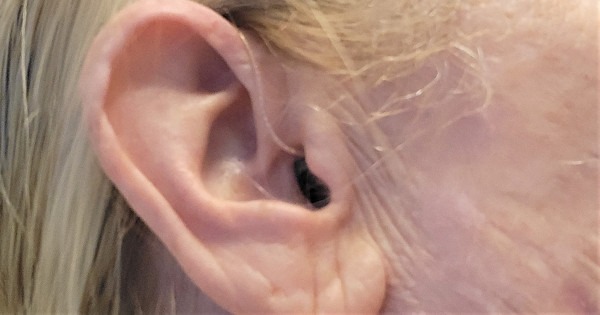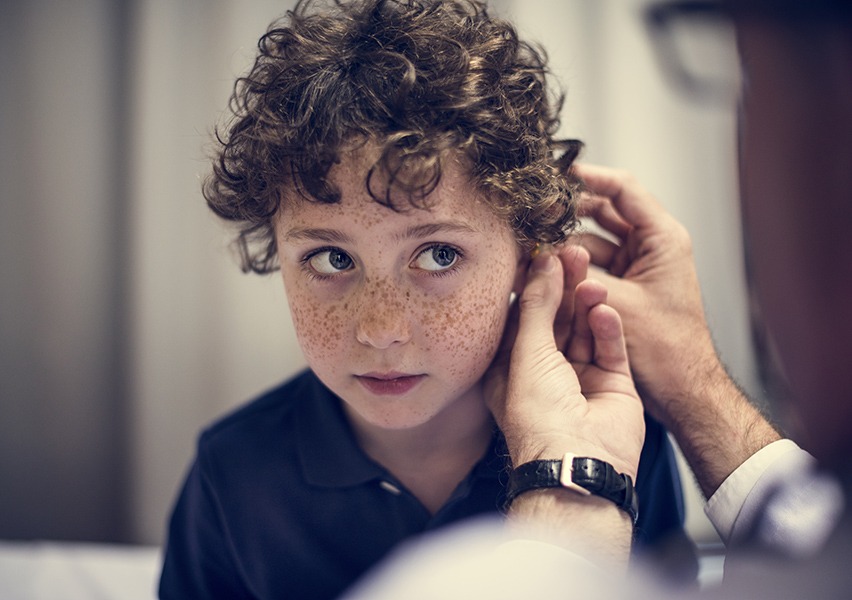Introduction
Otosclerosis, a hearing condition that primarily affects the bones in the ear, presents unique challenges for those living with it. More so for our senior population, who often have to navigate additional health concerns as they age. This blog post aims to shine a light on the experiences of seniors with otosclerosis, to provide understanding, create empathy, and enhance our knowledge on how to support them better.
Understanding the personal experiences of seniors with otosclerosis can foster better communication between patients, healthcare providers, and caregivers. Hearing directly from those affected presents an opportunity to walk in their shoes and gain a clearer picture of their daily life. This post is a compilation of stories and firsthand accounts from seniors living with otosclerosis, aiming to provide a realistic and comprehensive perspective of their journey.
While each experience with otosclerosis is unique, there are common threads that unite these stories – a search for answers, a struggle to adapt, and the enduring resilience in the face of adversity. Through these shared experiences, we hope to provide solace and solidarity for those on similar journeys. It’s also essential for us to understand the emotional toll this condition can take on individuals, as this often goes unnoticed.
Lastly, by painting a picture of a day in the life of an otosclerosis patient, we aim to build empathy, understanding, and knowledge among families, friends, and caregivers. We hope that this journey through their lives not only informs but also inspires.
Living with Otosclerosis – Personal Stories
Firstly, we delve into personal stories of seniors living with otosclerosis. These narratives serve as a testament to their strength and resilience. Bob, a 78-year-old retiree, recalls his experience: “When I was first diagnosed with otosclerosis, it felt like my world had shrunk. But I realized that it was just a different path, not a lesser one.” He shares about his daily struggles with hearing loss and how he has learned to adapt his lifestyle around it.
For Alice, a 72-year-old grandmother, otosclerosis was a late discovery. “I always thought my hearing was just getting poor because of my age,” she confesses. It was only after her grandchildren complained about the TV volume that she sought medical help and got diagnosed with otosclerosis. “It was a shock, but then I found solace in the fact that there were ways to manage it,” she shares. Both Alice and Bob have found assistive listening devices and lip-reading incredibly helpful in their journey.

Unheard Voices, Unseen Progress: The Unfolding Landscape of Otosclerosis Research and Rehabilitation
Introduction In the quiet corners of life, in the unseen spaces, a transformation is taking place. Otosclerosis, a condition once shrouded in mystery, is gradually

Gazing Into The Crystal Ball: The Future of Otosclerosis Research and Treatment
Introduction In the quiet corners of audiology clinics and bustling research laboratories worldwide, a profound transformation is underway. Groundbreaking studies are shining a light on
Navigating Life with Otosclerosis – A Firsthand Account
For our second section, we have James’ firsthand account of living with otosclerosis. James, a 79-year-old veteran, has been living with otosclerosis for a decade. He talks about the initial denial and how he gradually came to terms with his condition. “You never think it’ll happen to you until it does,” he says, recounting his first feelings upon the diagnosis.
James elaborates on the adaptations he had to make in his lifestyle. From using hearing aids to learning sign language, he has navigated numerous challenges to continue living a fulfilling life. He highlights the importance of patience and perseverance. “It’s a learning curve, certainly. But, once you accept and adapt, life becomes much easier,” he notes.
Experience Exceptional Sound Quality with Vivtone RIC02, a professional RIC hearing aid featuring a receiver in the canal design. Enjoy superior sound fidelity, reduced distortion, and minimal feedback. With a remarkable 51dB peak sound gain, it surpasses many other devices, catering to a wide range of hearing loss levels.
State-of-the-Art Technology awaits you with Vivtone RIC02. Designed with US-made components from renowned brands like Intricon and Knowles, this advanced device offers exceptional quality at a fraction of the cost. The built-in 30mAh steel-sealed lithium polymer battery charges rapidly in just 1.5 hours and provides an impressive battery life of over 20 hours.
Reliability and Water Resistance come hand in hand with the Vivtone RIC02. Secure your device with the included lanyard and clip, preventing accidental loss. With an IP65 rating, these hearing aids are resistant to water, sweat, and raindrops, assuring longevity and durability. Give the perfect gift to your seniors and loved ones, as this device combines functionality with an appealing appearance and packaging.
The Emotional Impact of Otosclerosis
In addition to the physical challenges, otosclerosis can have a profound emotional impact on seniors. It’s important to acknowledge and address the emotional aspects of living with this condition. The stories of seniors with otosclerosis often reflect a range of emotions, including frustration, sadness, and even moments of isolation.
Many seniors express frustration at the gradual loss of hearing and the impact it has on their daily interactions. Mary, an 80-year-old retired teacher, shares, “It’s difficult when you can’t fully participate in conversations or hear the laughter of your grandchildren.” This sense of missing out on important moments can lead to feelings of sadness and disappointment.
Feelings of isolation can also arise as seniors with otosclerosis may withdraw from social situations due to the challenges they face. John, a 75-year-old artist, describes his struggles: “I used to love attending art exhibitions and engaging in discussions with fellow artists, but now I often feel left out and disconnected.” These emotions highlight the need for support systems and understanding from family, friends, and healthcare providers.
A Day in the Life of an Otosclerosis Patient
To truly grasp the impact of otosclerosis on the daily lives of seniors, let’s explore a typical day in their shoes. Imagine waking up to the sound of the alarm clock, struggling to hear its beeping. Simple tasks like having a conversation with a loved one, listening to the news on the radio, or even enjoying a phone call with a friend can become challenging.
Seniors with otosclerosis often face difficulties in noisy environments, such as restaurants or family gatherings, where background noise can overpower conversations. These situations can be frustrating and exhausting, leading to feelings of social withdrawal.
However, it’s important to note that not every day is defined solely by the challenges of otosclerosis. There are moments of triumph and joy as well. Seniors find solace in the beauty of nature, the warmth of a loved one’s smile, or the melodies of their favorite songs. They adapt their routines, embrace assistive technologies, and seek support from their communities.
QUIZ - SYMPTOMS OF HEARING LOSS
Conclusion
Living with otosclerosis as a senior presents unique challenges, but it is a journey marked by resilience, adaptation, and personal growth. Through personal stories, firsthand accounts, and an exploration of the emotional impact, we gain a deeper understanding of the lives of seniors with otosclerosis.
We recognize the importance of providing support, empathy, and resources for seniors on this journey. Healthcare professionals, family members, and communities play a crucial role in creating an inclusive and understanding environment for seniors with otosclerosis.
By walking in their shoes and embracing their experiences, we can foster greater compassion and awareness, ultimately enhancing the quality of life for seniors with otosclerosis.
Living with Otosclerosis: Personal Stories, Challenges, and Resilience
In conclusion, the personal stories of seniors living with otosclerosis provide us with a glimpse into their journey. It is evident that living with this condition requires not only physical adjustments but also emotional fortitude. The resilience and determination displayed by these seniors serve as an inspiration to us all.
While the challenges of otosclerosis may seem daunting, it is important to remember that seniors with this condition are not defined solely by their hearing loss. They continue to lead fulfilling lives, embracing the support and resources available to them.
To better support seniors with otosclerosis, it is crucial for healthcare providers and caregivers to be attuned to their emotional needs. Providing a listening ear, offering reassurance, and connecting them with support groups can go a long way in alleviating feelings of isolation and promoting mental well-being.
Additionally, technology plays a vital role in enhancing the lives of seniors with otosclerosis. Assistive listening devices, such as hearing aids and captioned telephones, can significantly improve communication and engagement. Encouraging seniors to explore these technological advancements and providing guidance on their use can make a meaningful difference in their day-to-day experiences.
Lastly, fostering a culture of empathy and understanding within society is essential. By increasing awareness about otosclerosis and the challenges faced by seniors with this condition, we can create a more inclusive and supportive environment. Educating family members, friends, and the wider community about otosclerosis can help reduce stigma and foster empathy and compassion.
In conclusion, the stories and experiences of seniors living with otosclerosis are a testament to their strength and resilience. By shedding light on their challenges, triumphs, and emotional journey, we can create a more compassionate and informed society. Together, we can support seniors with otosclerosis in living fulfilling and meaningful lives, ensuring that their voices are heard and their experiences are valued.






